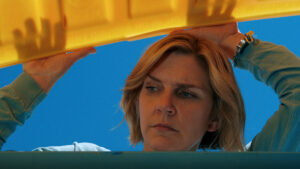
In a groundbreaking initiative, researchers from the Walter and Eliza Hall Institute of Medical Research (WEHI) are embarking on a pioneering study to examine the healthcare experiences of culturally diverse men with prostate cancer. This landmark project, funded by a grant from Movember, aims to address the healthcare disparities faced by patients from culturally and linguistically diverse (CALD) backgrounds in Australia.
The project, known as PROCAP, seeks to collect comprehensive data on the healthcare journeys of CALD patients, marking the first time such a study has been undertaken in the country. With prostate cancer being the most common cancer among Australian men, affecting one in five, the initiative is crucial in understanding how cultural and language barriers may impact healthcare outcomes.
Understanding the Cultural Divide in Healthcare
While the reported incidence of prostate cancer among immigrant men in Australia is lower, experts suggest this may be due to reduced screening rates, often attributed to language and cultural barriers. To tackle this issue, PROCAP aims to enroll 300 CALD patients with advanced prostate cancer over the next two years. Participants will complete questionnaires designed to capture their healthcare experiences and quality of life at various stages of their treatment.
Associate Professor Ben Tran, a clinician researcher and co-lead of PROCAP, brings personal insights to the study. He recalls his Vietnamese grandfather’s distressing experience with metastatic prostate cancer, where language barriers likely affected the care provided. Instead of standard hormone therapy, his grandfather underwent a surgical procedure that caused significant distress.
“Australia is one of the most multicultural countries in the world, with culturally and linguistically diverse individuals representing a third of the population,” said Assoc Prof Tran. “But they can often face greater challenges when accessing healthcare due to various language and cultural factors.”
The Need for Comprehensive Data
Dr. Arsha Anton, another co-lead of the project, emphasizes the importance of this research in filling a critical gap in healthcare data. “Clinical trials often don’t include enough patients from culturally diverse populations, so very little is known about their experiences with prostate cancer, ability to cope with certain treatments, and patient-reported outcomes,” Dr. Anton explained.
The study aims to compare the quality of life and healthcare experiences of CALD patients with other Australians, identifying areas needing additional support. By accessing real-world data, researchers hope to tailor cancer treatments and consultations to ensure CALD individuals feel safe and confident within the healthcare system.
“We want everyone in Australia to feel assured that they will always get the best healthcare locally available, irrespective of cultural background. This project is a huge step forward in bolstering that trust within multicultural communities,” Dr. Anton added.
Broader Implications and Future Directions
Beyond prostate cancer, researchers envision PROCAP serving as a framework for other cancer types, potentially tracking the healthcare experiences of CALD women in the future. Participants will be selected through ePAD, a multinational registry that compiles demographic, treatment, and outcome data of patients with advanced prostate cancer.
The project is supported by over $398,000 in funding from Movember’s Personalised Prostate Cancer Care Initiative. Sarah Weller, Global Director of Prostate Cancer at Movember, expressed the organization’s commitment to overcoming healthcare inequities.
“The PROCAP study is a critical step toward addressing the healthcare inequities faced by multicultural communities, ensuring that cultural and language barriers don’t stand in the way of better health outcomes,” Weller stated. “By supporting studies like PROCAP, we can drive real change in healthcare systems worldwide, ensuring that men receive care tailored to their unique needs and experiences.”
As PROCAP progresses, it promises to shed light on the unique challenges faced by CALD patients and pave the way for more equitable healthcare practices. The findings could influence policy changes, improve patient advocacy, and ultimately lead to a healthcare system that better serves all Australians, regardless of their cultural background.







